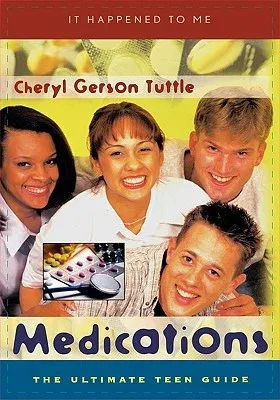While not a substitute for professional medical advice, this book is a
source of information about common medical conditions that teens often
face. The medications that are commonly prescribed for that condition
are listed along with a description of how the medication works in the
body, the brand name and generic or chemical ingredients for the
medication, and the common side effects and possible interactions with
food and other drugs. Additionally, strategies for coping with the
stigma associated with taking medications for chronic conditions are
included. The goal of this book is to inform the teen about the
medications, enabling the teen to be an active participant in his or her
treatment with medications. For example, a suggested list of questions
to ask the doctor or pharmacist is provided. Questions such as "What
food, drinks, or other medications should I avoid while taking this
medication?" "What do I do if I miss a dose?" "What are the possible
side effects, and which side effects should I report and which should I
ignore?" "How long before I see positive effects and know that the
medication is working?" By thinking about his or her lifestyle, the teen
will be alert to anything that could affect the medication and symptoms
that signal side effects or possible other problems with the medication.
Being well informed and playing an active role in the decision-making
process can help teens to feel more in control of their medical
conditions. Medication issues such as dealing with several different
doctors or specialists, taking several different medications, why not to
order medications from another country or from the web, taking
medications when pregnant or nursing, donating blood while taking
certain medications, driving, and traveling and taking medications are
addressed. This useful reference concludes with an example medication
diary, encouraging teens to monitor their medications and any side
effects; a glossary; a drug list, arranged alphabetically and listing
the generic, brand name, type,

